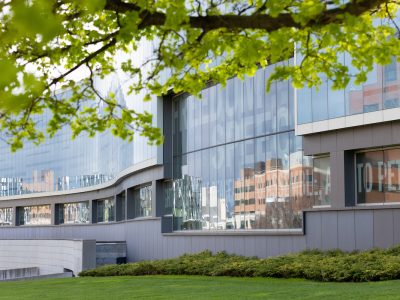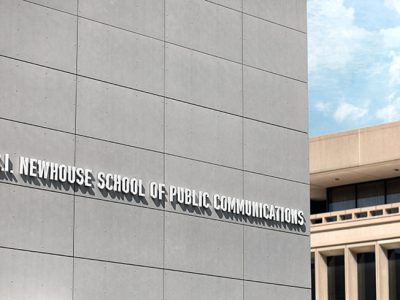Symposium to Explore Significance of 18th-Century Philosopher’s Essay on Perpetual Peace in Today’s World
Philosopher Immanuel Kant’s 1795 essay “Toward Perpetual Peace” still holds significant relevance even now more than two centuries after it was first published. With ongoing wars across the globe, securing peace remains elusive.
An upcoming one-day symposium will explore how Kant’s principles can help lay the foundation for lasting peace. The symposium is supported by the Central New York Humanities Corridor, whose administrative home is based at the Syracuse University Humanities Center. The event, “The Contemporary Relevance of Perpetual Peace,” will be held Friday, April 19, at Cornell University, with a symposium and workshop on one of Kant’s most widely read essays, Zum ewigen Frieden (“Toward Perpetual Peace”).
The symposium, as part of the Perpetual Peace Project, is organized by Gregg Lambert, Dean’s Professor of the Humanities in the College of Arts and Sciences and a founder and co-director of the Perpetual Peace Project, and Peter Gilgen, director of the Institute for German Cultural Studies and associate professor in the Department of German Studies and Graduate Field of Comparative Literature at Cornell University.
The Perpetual Peace Project, an ongoing international forum on the concept of peace, began as an initiative of the Humanities Center in 2008.
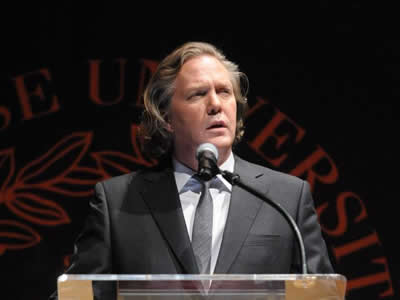
“The purpose of the project is to raise awareness and attention to the fact that war is not one regional issue,” Lambert says. “It is a global issue, and the number of wars only seems to increase each year.”
Open to the public, Friday’s symposium, which also is a celebration of Kant’s 300th birthday, will begin with three individual papers that examine different aspects of Kant’s treatise and its contemporary relevance.
“Kant’s popular essay was reviewed and cited as an inspiration by numerous thinkers from the start,” Gilgen says. “Anyone thinking about peace and what it means and implies had/has to take Kant’s profound remarks into account.”
The treatise served as an inspiration for the League of Nations, the first worldwide intergovernmental organization, founded in 1920, as well as its successor organization, the United Nations, in 1945.
“At the symposium, we hope to draw on a wide audience interested in Kant’s political philosophy as well as the theory and practice of peace—a topic that could not be more timely in light of the many ongoing conflicts in different parts of the world,” Gilgen says.
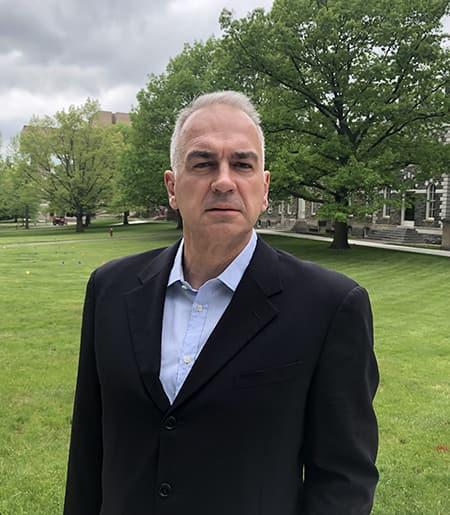
The second half of the event is dedicated to a workshop on the Perpetual Peace Project.
Lambert, who is also founding director of the Syracuse University Humanities Center in the College of Arts and Sciences, and Adam Nocek, associate professor in the School of Arts, Media and Engineering, Arizona State University, and co-director of the Perpetual Peace Project, will present the workshop, which will launch the Perpetual Peace Academy. The academy will feature a curriculum created by faculty from all over the world, contributing designs of courses that they would teach in a virtual setting.
“We are really trying to engage students on all campuses and other participants in talking about the Perpetual Peace Project, and then we’re going to inaugurate the Perpetual Peace Academy,” Lambert says. “The academy will be driven by international faculty who want to contribute their ideas from across the disciplines.”
Along with his presence at the symposium, Nocek also joined Lambert in Lambert’s undergraduate seminar, Problems in Marxism: Perpetual Peace, Tuesday for a discussion with students, and other participants, about the Perpetual Peace Academy. Nocek’s time at the symposium and in the seminar is supported as part of Syracuse University’s Distinguished Visiting Collaborator (DVC) initiative of the CNY Humanities Corridor.
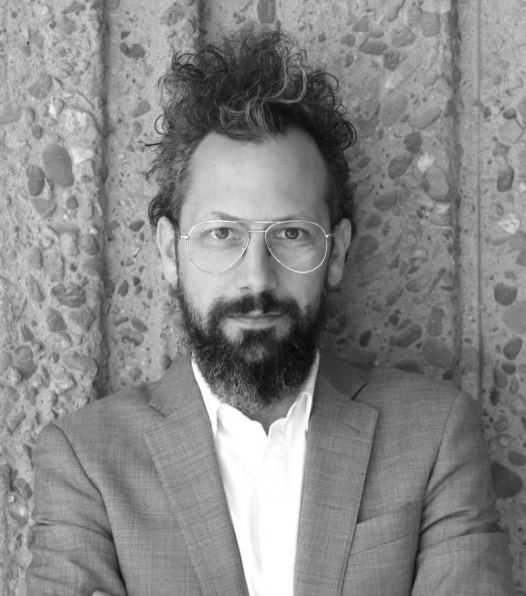
Vivian May, director of the SU Humanities Center and lead director of the CNY Humanities Corridor, says the scholar mini-residency bridges the Syracuse University campus with another corridor campus, a model that deepens collaborative networks.
“In conversation with Lambert, Gilgen, and a range of other interlocutors over the course of his visit, Adam Nocek, founding director of the Center for Philosophical Technologies at Arizona State University, will discuss the importance of philosopher Immanuel Kant’s yet-to-be-realized concept of ‘perpetual peace,’” May says. “I encourage everyone who can to engage with this year’s DVC events and activities, as they offer an important opportunity for us to step back, refuse broad acceptance of violence and devastation, and actively pursue planetary peace—a peace that centers climate justice and holistic thriving.”
Since its start in 2008, the Perpetual Peace Project, structured around Kant’s six preliminary articles, has gone through three phases, with the first at Syracuse University and the United Nations in New York. This first phase included a co-edited and re-issue of a new book publication of Kant’s “Perpetual Peace” and several different events.
In partnership with the Humanities Center and the Centre for Humanities at Utrecht University in the Netherlands, the second phase from 2013-15 included a series of events commemorating the Treaty of Utrecht and a documentary film.
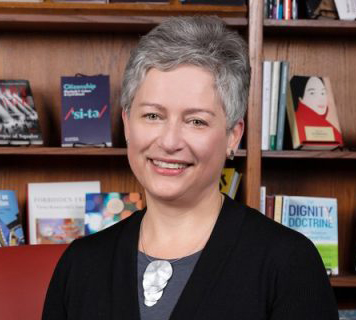
This latest phase has reinaugurated the project following the invasion of Ukraine by Russia in 2022. Lambert partnered with Nocek to kick off this latest phase, including a launch event conference at the University of Warsaw, Poland, followed by conferences at the Institute of Philosophy of the Czech Academy and the Jan Evangelista Purkyně University in Ústí nad Labem, both in the Czech Republic.
Friday’s symposium features a presentation by Gilgen, moderated by Elke Siegel, German studies, Cornell; a presentation by Patchen Markell, associate professor, government, Cornell, and moderated by Karin Nisenbaum, Renée Crown Professor in the Humanities and assistant professor, College of Arts and Sciences, Syracuse University; and a presentation by Neil Saccamano, associate professor, literatures in English, Cornell, and moderated by Verena Erlenbusch-Anderson, associate professor, philosophy, College of Arts and Sciences, Syracuse University.
For this latest phase, Lambert edited a new version of Kant’s original treatise, which has been published and is available for event participants.

